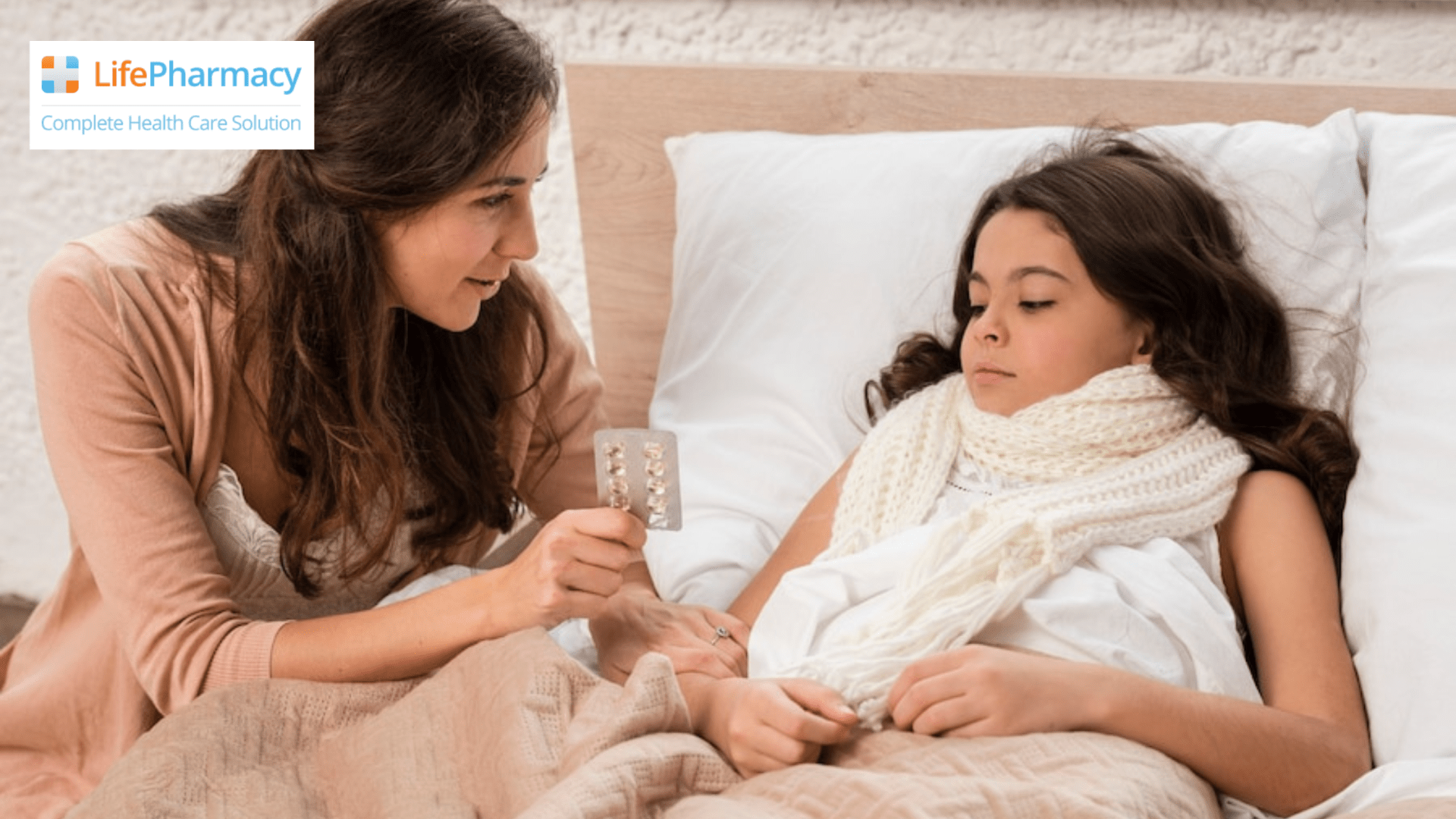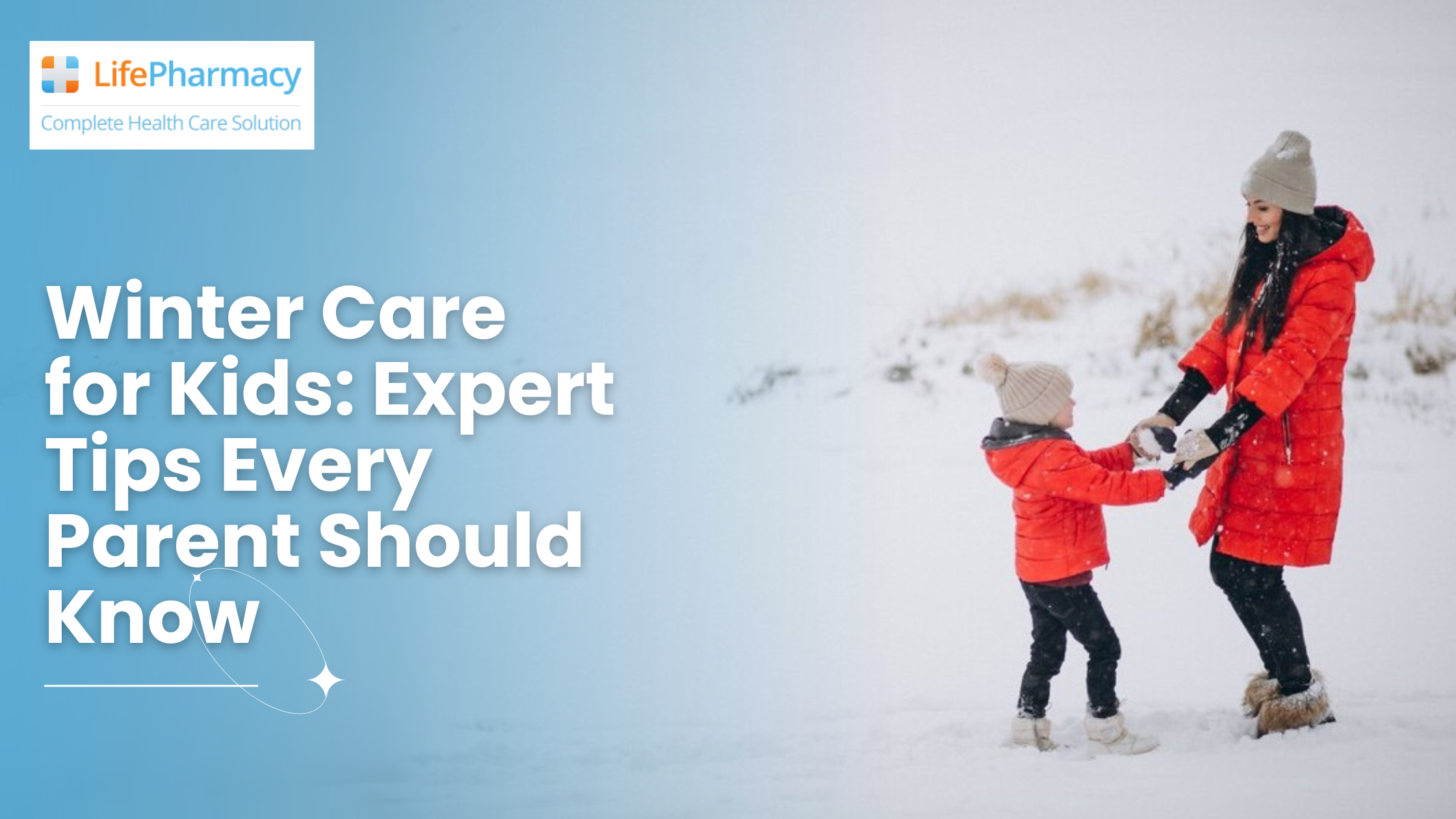This blog gives practical advice on winter care from experts at UK chemists: stay ahead of the season's challenges and keep your family safe, warm, and thriving!
Winter Safety Tips to Brave the Chill and Help your Kids Stay Healthy in Cold Temperatures:
Teach Kids To Practise Good Hygiene
When children practice proper hygiene, it helps stop the spread of germs, reducing sick leaves while giving them more focused time to learn.
Show your child how to wash their hands properly—20 seconds is all it takes! Using tissues when coughing or sneezing is a good hygiene practice that kids must be taught from a very tender age. Don't forget that letting fresh air into your home or classroom can also reduce the spread of airborne viruses.
By following these easy steps, your little ones can enjoy a safer, healthier winter. Keeping kids safe in cold weather has never been this simple!
Knowing When to Keep Your Child at Home
A new school term is a great time to brush up on the signs of common illnesses and know when it's best to keep your child at home.Online Pharmacies UK is here to support your healthcare needs throughout the year for mild to severe illnesses.
-
Mild Illnesses: If your child has a slight cough or cold but feels okay and doesn't have a fever, it's fine to send them to school or nursery.
-
Fever: If your child has a high temperature, they should stay home until they feel better and their fever is gone.
-
Diarrhea or Vomiting: Keep them home for at least 48 hours after their last episode.
-
COVID-19: Routine testing for COVID-19 isn't needed unless a health professional recommends it. However, if your child tests positive, they should stay home and limit contact with others for 3 days after the test. Children living with someone who has COVID-19 can still attend school as usual.
-
Measles: If your child shows signs of measles and hasn't had both doses of the MMR vaccine, they should stay home.
Looking to stay healthy and protected this winter?
Explore a range of essential vitamins and medications from Life Pharmacy to keep your family thriving.
Spotting Illnesses Early
As winter sets in, staying alert to seasonal illnesses that could affect your child is important. This includes diseases like scarlet fever, measles, and chicken pox.
Taking proactive steps, including consulting your healthcare provider, can make a big difference in keeping your family safe. Don't forget that addressing hayfever and allergy relief needs during this time can prevent additional discomfort and keep your child feeling their best.
Keep Your Child Safe with Vaccinations
Vaccines are one of the best ways to protect your child from serious illnesses. Unfortunately, fewer children have been getting routine vaccinations in recent years, leaving them vulnerable to diseases like measles, mumps, and whooping cough. This also increases the risk of outbreaks in schools and adds strain on the NHS.
Check your child's red book or contact your GP to stay on track. Vaccines are a step toward keeping your child healthy and protected this school year!
Keep Your Kids Cozy and Safe This Winter
Cold and damp conditions can affect children's health, particularly those under five or with medical conditions. This winter safety tip will help to keep your little ones warm, comfortable, and healthy all season:
Warm Up Indoors: Keep rooms your child uses the most heated to at least 18°C. Avoid overheating babies, as it can increase the risk of Sudden Infant Death Syndrome (SIDS). Sealing drafts using draught excluders helps keep the chill-out and maintains a cozy indoor environment.
Layer Up for Outdoor Fun: Winter activities like throwing snowballs are super fun for the young warriors. When heading outdoors, layering is key. Kids need one more layer than adults since they lose heat faster. This is how you can keep them bundled up:
-
Base Layer: A snug, moisture-wicking thermal top and leggings. Avoid cotton as it traps sweat, making kids feel colder.
-
Middle Layer: Use wool sweaters or fleece pullovers to retain body heat.
-
Outer Layer: Waterproof and windproof jackets with hoods keep kids dry and shielded from harsh winds. Choose longer jackets that cover the hips for added warmth.
Besides these layers, don't leave out essential winter accessories like hats, mittens, socks, and boots to keep your kids warm and safe. Additionally, insulated snow pants or bibbed overalls add warmth and protection. Wear them over boots to keep the snow out.
Keep Your Kid's Skin Safe and Soft in the Cold

Cold weather can dry out your child's skin, making it rough and uncomfortable. Here are some simple tips to keep their skin soft and protected this winter.
Go for Baths, Not Showers: Instead of showers, have your kids take a warm bath (not hot) every other day for about 5 to 10 minutes. This helps their skin soak up moisture. Use gentle, fragrance-free cleansers and skip the bubble baths.
Moisturize Right After the Bath: As soon as they're out of the tub, gently pat their skin with a towel to leave it damp, then apply a thick, cream-based moisturizer from UK chemists. Our quality products help lock in moisture and keep your child’s skin soft.
Protect Their Lips, Cheeks, and Face: Dry lips can lead to licking, which makes the problem worse. Instead of flavored lip balms, use petroleum jelly or an unscented balm around their lips to keep them moisturized and prevent irritation.
Before heading outside, slather petroleum jelly on your child's exposed face to protect their skin from the cold. Apply it under face masks, as moisture from breathing can cause skin to get damp and irritated. Don't forget to apply sunscreen with SPF30 or higher, especially at high altitudes or while enjoying outdoor activities such as skiing. The winter sun can be too intense for your children.
Eczema Care Made Easy
Help your child manage eczema by applying a hypoallergenic moisturizer once or twice daily, especially after a bath. Avoid itchy fabrics like wool or anything scratchy that could irritate their skin. Stick to soft, breathable materials to keep them comfortable.
Try wet wraps to help your child sleep better for nasty eczema flare-ups. Apply moisturizer to the affected area, cover it with damp gauze or snug pajamas, and wrap it with an elastic bandage for added comfort.
Dry air can worsen eczema, so using a humidifier in your child's room can keep their skin hydrated. Just remember to place it safely away from your child's bed.Besides your skin, winter weather can impact the eyes by causing dryness, irritation, and increased sensitivity due to cold winds and lower humidity levels.
Limit Outdoor Time in Extreme Cold
When the wind chill dips to 10°F (-12°C) or lower, keeping children indoors is best. For infants, avoid taking them outside in freezing weather unless absolutely necessary. Playing in the cold for too long can lead to frostbite or hypothermia in children.
Frostbite occurs due to frozen skin and outer tissues. It often affects the fingers, toes, ears, and nose. To prevent it, set time limits for outdoor play and bring kids inside regularly to warm up.
Hypothermia happens when there is an abnormal drop in your child's body temperature due to prolonged exposure to cold, especially if they're not dressed warmly enough. Watch for signs like uncontrollable shivering, blue lips, clumsiness, confusion, or slurred speech. In severe cases, they might stop shivering, become disoriented, or even lose consciousness.
If you notice any of these symptoms, bring your child indoors immediately. Remove wet clothing and encourage them to move around and drink something warm to help restore their body temperature.
Keep Your Child Healthy and Happy This Winter With Life Pharmacy The Trusted UK Chemist

By taking these preventive steps and addressing illnesses early, you can ensure your child stays healthy and minimizes school absences this term. Keep your child and those around them healthy, happy, and ready to learn!
Explore essential health essentials like vitamins and supplements at Life Pharmacy UK chemists to boost your child's immunity. And when needed, you can conveniently buy medications online to keep your family's wellness routine on track. A little care today ensures a brighter, healthier tomorrow!






